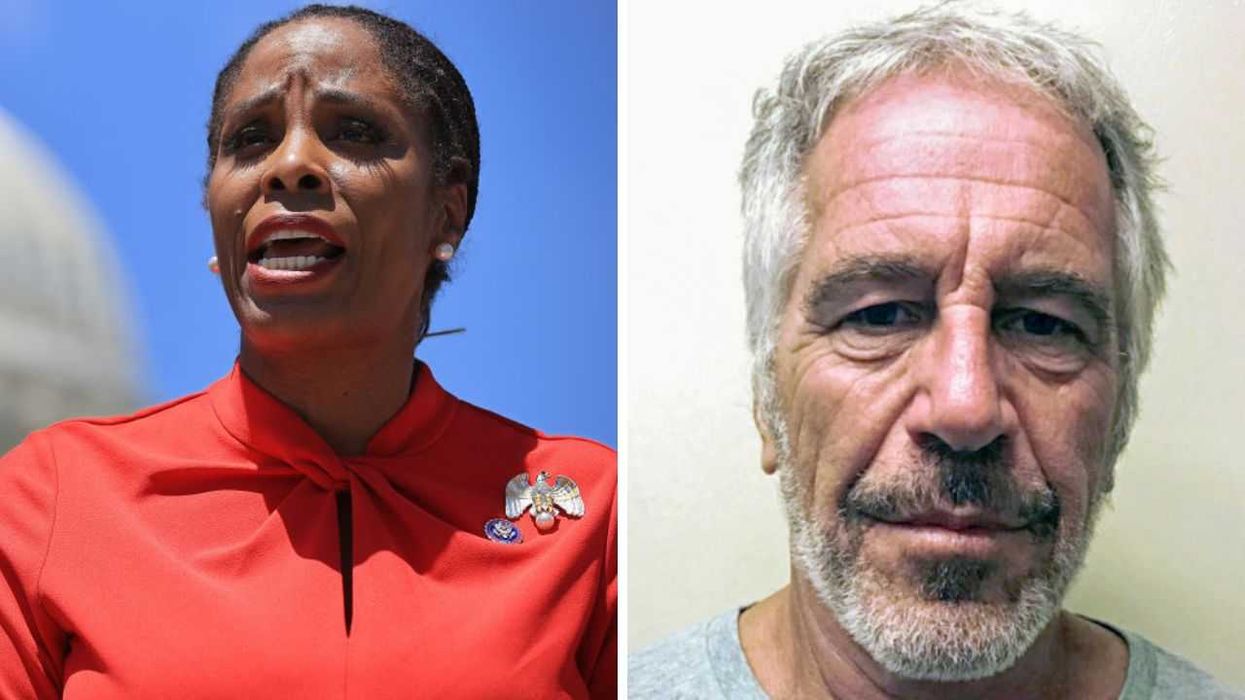© 2025 Blaze Media LLC. All rights reserved.
"I don't see how it can be justified..."
WASHINGTON (AP) — Every year, the U.S. spends millions of dollars to send government workers to Harvard for a month, an expensive training arrangement that some in Congress are questioning.
A monthlong leadership course at the Ivy League university costs taxpayers more than $18,000 per employee. That's more than twice what the average public university charges for tuition and fees, excluding room and board, for an entire year, and enough to pay the same charges for a semester and a half at the average private university.
Government and school officials say that's what it costs to train executives. And it's what's being paid by top companies, which compete with government agencies for talent.
But the Obama administration acknowledges that nobody's in charge of figuring out whether the government is getting the best deal possible, or even whether the training is worth the money.
The practice came to light this spring when Sen. Charles Grassley, R-Iowa, asked Harvard about its Senior Executive Fellows program and why it costs so much. Harvard's Kennedy School of Government responded that, while the Senior Executive Fellows program was its most popular government training program, it also offered government classes on leadership, regulating and economic development ranging from $500 to $1,000 a day.
With the U.S. embroiled in two wars and still recovering from an economic meltdown, dean David Ellwood wrote to Grassley, "It is hard to imagine a time when we more badly need wise and effective public servants who are well-equipped to respond to these large and rapidly changing challenges."
Enrollment in Harvard's government training programs increased from 376 to 490 between 2007 and 2009, a rise of about 30 percent, according to figures the school provided Congress. Tuition for the four-week Senior Executive Fellows program has risen from $15,500 to $18,300 during that time.
In all, the government spends about $5 million a year on Harvard training programs, according to the school's figures.
The Office of Personnel Management, the government's human resources department, told Grassley in a letter that federal regulations leave it up to individual agencies to select training.
"As a result, OPM does not evaluate individual agency programs for cost effectiveness or impact," John Berry, the office's director, wrote.
Since 2006, federal agencies have been required to submit training data to OPM for review, but OPM wrote that "the information reported is often incomplete." Agencies have been working to improve that process for the past three years, OPM said, and the Obama administration planned to make that data available online by the end of September.
It is not yet available.
Despite more than a half dozen requests over the course of more than a week, the Obama administration declined to discuss the training.
"I don't see how it can be justified to spend about $5,000 a week to send government executives to training at the most elite universities," Grassley said. "In addition, the government office that runs the training program seems to have a lackadaisical attitude about the seemingly wasteful nature of this spending."
Shane Deichman, a longtime Pentagon scientist who attended the Harvard program in 2003, said the days were packed with sessions. And though they weren't particularly difficult academically, the benefit was not in its academic rigor, he said. Rather, it provided a rare chance for government managers to see things a different way.
"When you're in most of those government positions, you don't get the opportunity to see how other nations do it, how local governments do it," Deichman said.
The question at the heart of the debate is when the government should act like the large corporation it essentially functions as. The American Society for Training and Development estimated that U.S. organizations spent at least $2.8 billion on high-level executive training in 2007. About half the participating companies were major corporations with $3 billion or more in revenue.
Executive development is necessarily more expensive than typical staff training, ASTD says, because top-level executives are in high demand and it costs more to hire an experienced training staff.
In its letter, Harvard urged Congress not to compare its tuition with undergraduate programs. The management training is much more intensive and the faculty is made up of government management experts from around the world, it said.
___
Online:
Harvard's Kennedy School of Government: https://ksgexecprogram.harvard.edu/
Want to leave a tip?
We answer to you. Help keep our content free of advertisers and big tech censorship by leaving a tip today.
Want to join the conversation?
Already a subscriber?
Jonathon M. Seidl is a former managing editor of Blaze News and a best-selling author and speaker. His next book, “Confessions of a Christian Alcoholic,” will be released on October 7, 2025.
Jonathon M. Seidl
Jonathon M. Seidl is a former managing editor of Blaze News and a best-selling author and speaker. His next book, “Confessions of a Christian Alcoholic,” will be released on October 7, 2025.
more stories
Sign up for the Blaze newsletter
By signing up, you agree to our Privacy Policy and Terms of Use, and agree to receive content that may sometimes include advertisements. You may opt out at any time.
Related Content
© 2025 Blaze Media LLC. All rights reserved.
Get the stories that matter most delivered directly to your inbox.
By signing up, you agree to our Privacy Policy and Terms of Use, and agree to receive content that may sometimes include advertisements. You may opt out at any time.





